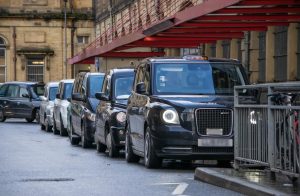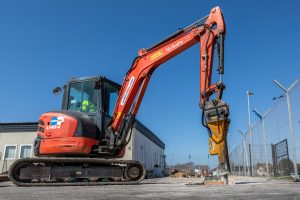Easyjet to ground entire fleet as final rescue flight completed

Budget airline Easyjet has announced it has grounded its entire fleet of aircraft.
The news comes as the boss of regional airline Loganair said the industry cannot survive without government help.
Jonathan Hinkles said that any airline saying it could survive without government help “would probably be lying”.
Easyjet said it had taken the decision following the unprecedented travel restrictions imposed by governments in response to the coronavirus pandemic and the implementation of national lockdowns across many European countries.
Over recent days easyJet has been helping to repatriate customers, having operated more than 650 rescue flights to date, returning home more than 45,000 customers.
The last of these rescue flights took place over the weekend.
The airline said there can be no certainty of the date for restarting commercial flights.
A statement said: “We will continuously evaluate the situation based on regulations and demand, and will update the market when we have a view.
“We continue to take every action to remove cost and non-critical expenditure from the business at every level in order to help mitigate the impact from the coronavirus. The grounding of aircraft removes significant cost.
“EasyJet maintains a strong balance sheet, with no debt re-financings due until 2022. We are in ongoing discussions with liquidity providers who recognise our strength of balance sheet and business model.
“EasyJet and Unite the union have collaboratively reached an agreement on furlough arrangements for its cabin crew. The agreement will be effective from 1 April 2020 for a period of two months and means that crew will be paid 80% of their average pay through the Government job retention scheme.”
Johan Lundgren, easyJet CEO said: “I am extremely proud of the way in which people across easyJet have given their absolute best at such a challenging time, including so many crew who have volunteered to operate rescue flights to bring our customers home.
“We are working tirelessly to ensure that easyJet continues to be well positioned to overcome the challenges of coronavirus.”
A group of 38 MPs has written to the Chancellor calling for extra help.
The MPs said in their letter that the impact of coronavirus on UK aviation had been “severe and truly unprecedented”.
The letter said: “Restrictions have all but eliminated airline and airport revenue, but not costs, which are substantial and go far beyond solely wages.
“It remains unclear what the duration of the economic impact will be on the UK’s airlines and airports, who face a pressing challenge to survive.”
Tim Alderslade, chief executive of Airlines UK, and Karen Dee, boss of the Airport Operators Association, issued a joint statement backing the initiative.
“We’ve put countless cross-industry ideas on the table to help aviation through this, and the chancellor said in his letter this week he was open to discussing them, yet no discussion has yet taken place,” they said.
“We are now entering the danger zone, and we urge government to change tack and start to engage on a sector-wide basis before it’s too late.”
Commenting, Russ Mould, investment director at Manchester investment platform AJ Bell, said: “It’s a miserable time to be a transport operator given that lockdown measures deny a large number of individuals from having a ticket to ride.
“The idea that easyJet grounds its entire fleet would have seemed unimaginable six months ago, but sadly that is now reality.
“Like many other airlines, easyJet is trying to get passengers to rebook flights for another time rather than issue refunds so as to avoid having to shell out significant sums of cash.
“However, consumer groups are putting pressure on the sector to give passengers back their cash, so easyJet’s problems are far from over.
“Grounding its fleet will save it money, but at the end of the day the airline would rather be flying people from A to B than sitting idle.
“Other forms of transport are operating on a reduced schedule as there are still people who need to get to work to do essential jobs.
“It seems unlikely that trains and buses will grind to a halt, although their timetables can be severely cut back.
“Train and bus operator Go-Ahead recently issued a profit warning as travel restrictions took a bite out of earnings, so too did sector peer Stagecoach.
“It, therefore, should come as no surprise that ticket seller Trainline would also be hurt, as illustrated by analysts putting through very large downgrades to earnings expectations.
“From a stock market perspective, transport companies have already seen very large share price declines.
“It would, therefore, seem natural to suggest that they could be among the first to recover once we get signs that coronavirus is being contained.”








